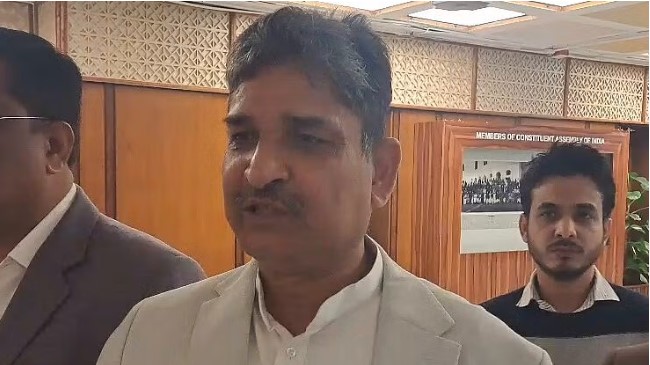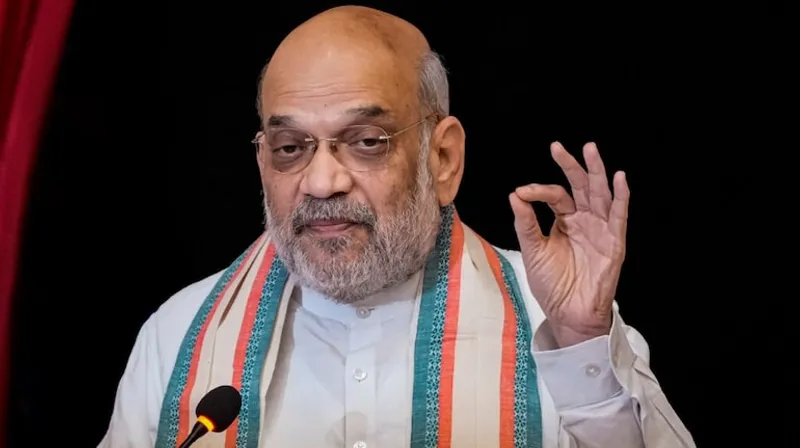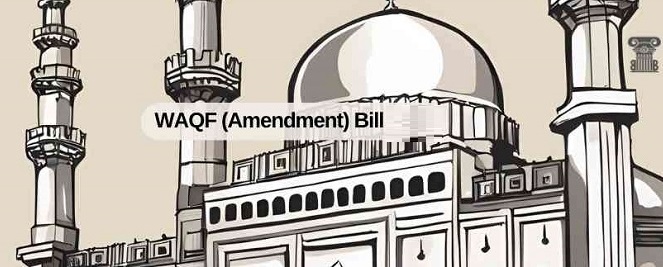IShfaq Gowher
New Delhi 04 April : Congress Member of Parliament (MP) Mohammad Jawed has moved the Supreme Court challenging the Waqf (Amendment) Act, alleging that the law discriminates against the Muslim community and violates their fundamental rights. The petition, titled Mohammad Jawed vs Union of India, raises constitutional concerns over the provisions of the proposed legislation.
Jawed, who is the Congress party whip in the Lok Sabha and a former member of the Joint Parliamentary Committee on the Waqf (Amendment) Bill, 2024, has contended that the amendments infringe upon Articles 14 (equality before law), 15 (protection from discrimination), 25 (freedom of religion), 26 (management of religious affairs), 29 (protection of culture and interests of minorities), and 300A (right to property) of the Indian Constitution.
Notably, while the Waqf (Amendment) Bill has been passed by both Houses of Parliament—Lok Sabha and Rajya Sabha—it is yet to receive Presidential assent and come into force as law.
The petition, filed through advocate Anas Tanwir, argues that the amendments impose disproportionate restrictions on Muslim religious endowments, unlike the governance structures of Hindu and Sikh religious trusts, which enjoy a greater degree of autonomy.
“For instance, while Hindu and Sikh religious institutions retain significant self-regulation, the Waqf Amendment disproportionately increases state intervention in Muslim waqf affairs. This differential treatment amounts to a violation of Article 14 and introduces arbitrary classifications that lack a reasonable nexus to the intended objectives, thus falling afoul of the doctrine of manifest arbitrariness,” the plea states.
One of the contentious provisions highlighted in the petition pertains to the restriction on the creation of waqf based on the duration of religious practice. Jawed argues that this limitation lacks any basis in Islamic law, custom, or precedent, and infringes upon the fundamental right to freely profess and practice religion under Article 25.
“This clause discriminates against individuals who have recently converted to Islam and wish to dedicate property for religious or charitable purposes, thereby violating Article 15 as well,” the plea reads.
The petition also challenges amendments to the composition of Waqf Boards and the Central Waqf Council, which mandate the inclusion of non-Muslim members in administrative bodies governing waqf affairs. Jawed contends that this constitutes an unjustified intrusion into the religious governance of Muslim institutions.
“Hindu religious endowments are exclusively managed by Hindus under various state enactments. Imposing non-Muslim oversight over Muslim endowments, without similar mandates for other religious groups, reflects arbitrary and selective intervention, thereby violating Articles 14 and 15,” he argues.
The Waqf Act, 1995 was originally enacted to regulate waqf properties—assets dedicated solely for religious or charitable purposes under Islamic law. It defines the powers and functions of the Central Waqf Council, State Waqf Boards, Chief Executive Officers, and mutawallis (custodians), and also empowers Waqf Tribunals to adjudicate disputes in place of civil courts.The Amendment Bill proposes significant changes to this framework, sparking concerns among stakeholders over increased state control and potential infringement on religious freedoms. The Supreme Court is expected to examine the constitutional validity of the amendments as the matter progresses.









